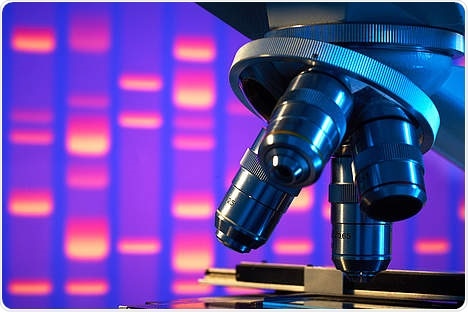Neuroblastoma is a rare form of malignant tumor, primarily affecting children under the age of six. A research team led by molecular pathologist Lukas Kenner from MedUni Vienna's Department of Pathology has now discovered, through genome sequencing, that the protein ALK and the cancer gene PIM1 are involved in the development of this tumor. The study found that targeted cancer treatment using an ALK inhibitor in combination with a PIM1 inhibitor can increase the chances of survival of children with an unfavorable prognosis. The study has now been published in the leading journal "Nature Communications".

One of the commonest and most lethal types of solid childhood cancer is neuroblastoma, a tumor of the peripheral nervous system. It occurs in approximately 10% of childhood cancer cases, with 90% of the sick children being under the age of six. The course of the disease can differ greatly, depending upon the clinical picture and genetic mutation of the cancer cells. For example, the tumor can spontaneously regress but equally there can be metastasis and recurrences with an unfavorable prognosis.
The standard treatment used so far involves surgery, high-dose chemotherapy and/or radiotherapy but, in the event of recurrence, the chances of 5-year survival are not very high. For a long time now, the research team led by molecular pathologist Lukas Kenner from MedUni Vienna's Department of Pathology and Head of the Division of Laboratory Animal Pathology at Vienna University of Veterinary Medicine has been studying a specific protein, anaplastic lymphokinase ALK, in relation to the development of neuroblastoma in children. This protein is found to have mutated in approximately 14% of these young patients. Small molecular ALK inhibitors, which are already approved for the treatment of ALK-positive lung cancer, are currently undergoing clinical trials for neuroblastoma patients with the mutated ALK gene. Preclinical studies confirm therapeutic efficacy, but some tumors develop resistance to ALK inhibitors.
The studies are therefore focusing on developing new treatment options on a molecular biological basis. It is being attempted to exploit molecular structures that are essential for tumor development for therapeutic purposes. Working with Suzanne Turner, Division of Cellular and Molecular Pathology, Addenbrooke's University Hospital, Cambridge UK, Kenner's team tested the therapeutic effect of inhibitors for ALK mutations in children with recurrent neuroblastoma.
Genome sequencing of these patients revealed that the cancer gene PIM1 is also activated in neuroblastoma. A therapeutic approach now lies in deactivating this protein and this can be done using a targeted cancer therapy in the form of combined administration of ALK- and PIM1 inhibitors. At the moment, there are no drugs licensed specifically for PIM1, but preclinical studies are being conducted with Suzanne Turner to investigate PIM1 and ALK inhibitors.
Source:
Journal reference:
Trigg, R.M., et al. (2019) The targetable kinase PIM1 drives ALK inhibitor resistance in high-risk neuroblastoma independent of MYCN status. Nature Communications. doi.org/10.1038/s41467-019-13315-x.